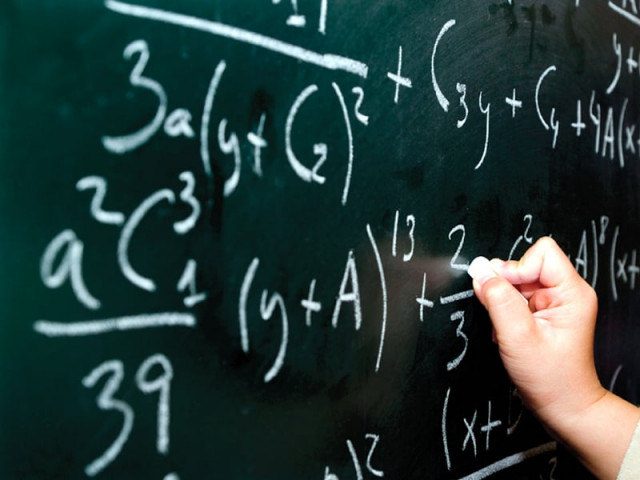International literacy day: Only half of Sindh goes to primary school
Education statistics disprove politicians’ rhetoric of improving standards.

International literacy day: Only half of Sindh goes to primary school
At present, the official literacy rate in the province stands at a shocking 59%. But according to the definition of literacy that is unbecomingly used in Pakistan, each person who can sign their name is considered to be literate.

For this reason, asserted Mosharraf Zaidi, the campaign director of Alif Ailaan - a national alliance for education reform, the official literacy statistics, as such, do not provide an accurate measure of reading and writing ability among the populace.
"Literacy is the ability to read and write but the way it is measured in Pakistan is very limited," said Zaidi. "Even with this distorted terminology, we have one of the world's lowest literacy rates and we lament this fact year after year. We are shamelessly allowing illiteracy to continue in this country. Where is the protest against this abomination and national catastrophe?" he questioned.
Baela Raza Jamil, the programmes director at the Idara-e-Taleem-o-Aagahi, concurred. She asserted that the government, which currently appears to be out of sync with time and reality, direly needs to improve its policy definition in order to have a 'functionally literate' population.
"Without instilling the comprehensive notion of literacy in the future government policies and financial plans, our society will not be able to sustain for long," warned Jamil.
Statistics disprove claims
Despite repeated commitments from all major political parties, there seems to be a long way to go before the country is able to provide quality education for all.
The net enrolment rate at the primary-level of education in Sindh stands as low as 52 per cent which means nearly half of all children, whose schooling otherwise should have begun, are still out of schools, according to the official Pakistan Social and Living Standards Measurement Survey 2012-13.
What is even more shocking is the drastic drop in enrolment at subsequent levels of education, with middle school enrolment reducing to 19 per cent and high school enrolment dwindling further to a meagre 12 per cent.
The government manages to enroll nearly half of the school-going-age children at the primary-level of education, but even around 77 per cent of these fail to continue education till high school.
Among the 23 districts of Sindh, 13 still hold the ever-expanding population with literacy even below 50%. In districts such as Thatta and Tando Muhammad Khan, the literacy rate stands at its lowest (36%), followed by Jacobabad (37%) and Badin and Kashmore (39%).
"For a more vivid picture, exclude the urban districts with relatively higher literacy rates, including Karachi [79 per cent] and Hyderabad [69 per cent], and see what misbalance this will cause to the cumulative statistics," argued Jamil.
For Zaidi, political instability in the country has been a major problem for education.
In Sindh, for the first time, maintained Zaidi, political leadership from the very top has decided to improve teachers' governance, but with almost no media attention to the issue, any possible gains are at risk of being drowned out in other political noise.
"Pakistan needs simultaneous reform in all areas, including the economy, election processes and anti-corruption," added Zaidi. "But the one area that can make everything a lot better automatically is literacy and education."
Published in The Express Tribune, September 8th, 2014.



















COMMENTS
Comments are moderated and generally will be posted if they are on-topic and not abusive.
For more information, please see our Comments FAQ